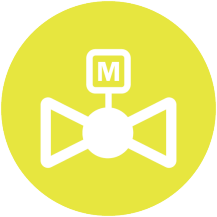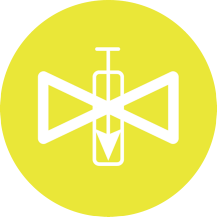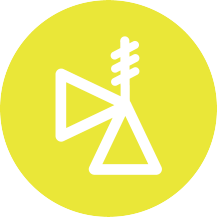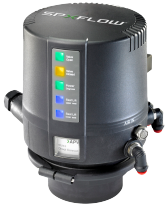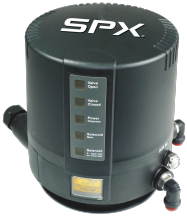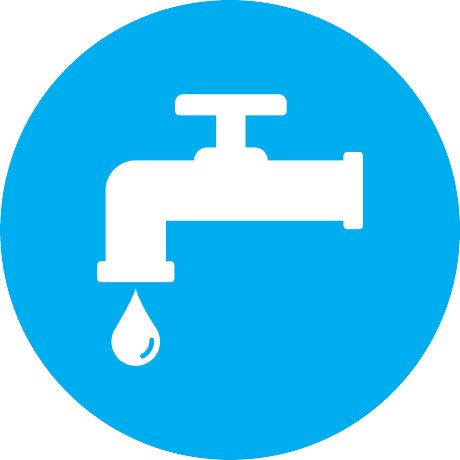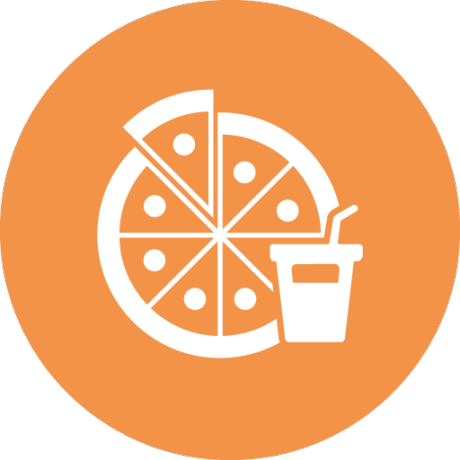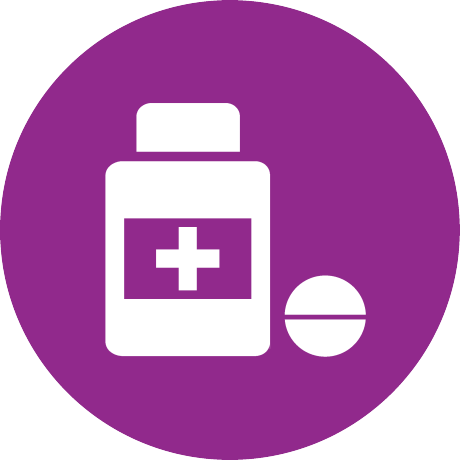Valves are mechanical components that control the flow of a liquid in a process. This technology enables the safe and efficient design of industrial processes.



Valves
HOW DOES A VALVE WORK?
 A valve is installed between two pipelines and allows control of the flow rate and direction of a medium. The medium flows into the valve body through the inlet and reaches the closure component of the valve. This component regulates the flow speed of the medium before it exits through the outlet. Depending on the valve design, samples can be taken from the respective section or backflow of the medium can be prevented.
A valve is installed between two pipelines and allows control of the flow rate and direction of a medium. The medium flows into the valve body through the inlet and reaches the closure component of the valve. This component regulates the flow speed of the medium before it exits through the outlet. Depending on the valve design, samples can be taken from the respective section or backflow of the medium can be prevented.
ADVANTAGES OF VALVES IN HYGIENIC PROCESSES
- Precise dosing enables consistently high product quality.
- Flow direction control
- Complete separation between two liquids
- Valve regulation can be automated.
- Suitable for high-pressure and high-temperature applications
DIFFERENT TYPES OF VALVES
Valves used in hygienic processes differ significantly in structure and function. Various valves are available for effective and safe flow control:
- Shut-off Valves: These valves control the opening and closing of sections in pipeline systems. A ball or a flap regulates the flow of the liquid.
- Double Seat Valves: Double seat valves enable the contamination-free conveyance of two different media through a pipeline system. The valve has two independently controllable closure components.
- Sampling Valves: These valves are suitable for controlled sampling of liquids in a pipeline section.
- Control Valves: Control valves regulate the flow and pressure in the pipeline for consistent product quality. Sensitive components in the conveyed liquid are protected.
- Check Valves: Check valves protect the pipeline from backflowing liquids. When the liquid flows in the intended direction, the valve is open. If the flow stops or changes direction, the valve closes.
- Pressure Relief Valves: These valves prevent excessive operating pressures in the production facility.
HYGIENIC APPLICATIONS OF VALVES
Shut-off valves are frequently used in the beverage and food industry. Additives and auxiliary substances must be precisely dosed for consistent product quality.
In hygienic processes, standardized cleaning procedures are an integral part of the production process. Double seat valves reliably prevent cleaning agents from encountering the conveyed medium.
Regular sampling for quality control in the production of pharmaceutical products is made possible by sampling valves. The valve construction ensures that no contamination can occur during sampling.
AXFLOW - YOUR PARTNER FOR VALVES
Our experienced sales engineers handle the optimal design of conveying technology for your facility. Benefit from process technology by leading manufacturers and direct availability of many products in stock. Contact us now for more information.
43 series from 9 manufacturers
-
- Agriculture
- Aviation
- Bakery and confectionery
- Beauty & Personal Care
- Brewing and beverages
- Building Services
- Ceramics
- Chemical
- Confectionery
- Convenience food
- Dairy
- Detergents
- Distilleries
- Docks
- Drinking Water
- Fish Farming
- Flood Defence
- Food & Beverage
- Fruit Concentrates
- Heating, Water & Sanitation
- Marine
- Mining
- Nuclear Power Plants
- Offshore
- Oil & Gas
- Oil Fats & Mayonnaise
- Paint & Surface Coating
- Paper Mills
- Pet Food
- Petrochemical
- Pharmaceutical
- Power Generation
- Research & Development
- Surface Finishing
- Transportation
- Wastewater
- Water Treatment
-
- Analysis
- Booster
- Circulation
- Cleaning
- Control
- Conveying
- Cooling
- Descaling
- Desinfection
- Dewatering
- Diagnostic
- Discharge
- Distribution
- Dosing
- Drain
- Drainage
- Dredging
- Dual Dispensing
- Extraction
- Feed
- Filling
- Filtration
- Flow Control
- Greasing
- Grinding
- Handling
- Heating
- High-Pressure
- High-Temperature
- High-Volume
- Injection
- Irrigation
- Level Control
- Lift
- Lifting
- Loading
- Low-Pressure
- Lubrication
- Medium-Pressure
- Metering
- Mixing
- Off-loading
- Powder Coating
- Pressurisation
- Process
- Processing
- Recirculation
- Recovery
- Refueling
- Replacement
- Rinsing
- Sampling
- Settling
- Spraying
- Tempering
- Transfer
- Treatment
- Unloading
- Volumetric Dispensing
- Washing
- Water-Jet Cleaning
- Water-Jet Cutting
-
- Abrasive Liquids
- Acetate
- Acids
- Adhesives
- Alcohols
- Ammonia
- Beer
- Biological Broths and Slurries
- Bitumen
- Carbon Fibers
- Caustic Solutions
- Cereals
- China Clay Slurry
- Chocolate
- CIP Fluids
- Clay
- Coffee
- Concrete
- Cooling Water
- Corrosive Dyes
- Corrosive Liquids
- Cryogenic Liquids
- Crystalline Slurry
- Dairy Products
- Detergents
- Diesel Fuel Oil
- Drinking Water
- Dye Pigment
- Emulsions
- Ethylene Glycol
- Ferric Chloride
- Fertilizers
- Foam Protein
- Fruit and Vegetables
- Fruit Concentrates
- Gels
- Glycol
- High Temperature Oils
- High Viscosity Liquids
- HydrochloricAcid
- Hygienic Liquids
- Irrigation Water
- Lake Water
- Latex
- Light Fluids
- Lime
- Liquid CO2
- Low NPSH
- Low Viscosity Liquids
- LPG
- Meat
- Milk
- Molasses and Syrups
- Must
- Non-Newtonian Fluids
- Oil, Fats and Mayonnaise
- Paints
- Paints Resins
- Personal Care Products
- Pet Food
- Phosphoric Acid
- Plastic
- Process Condensate
- Produced Water
- Radio Active Fluids
- Redox
- Refrigerants
- Rubber
- Sauces
- Seawater
- Sensitive and Viscous Fluids
- Separated Oil Processing
- Sewage
- Silver Nitrate
- Soaps and Detergents
- Solids and Abrasives
- Solvents
- Spirits
- Sulphuric Acids
- Surface Water
- Surfactants
- Synthetic Fibers
- Thermal Oil
- Thin Liquids
- Thixotropic Fluids
- Toluene
- Toxic Liquids
- Ultra Pure Water
- Vegetable Oils
- Vinegar
- Viscose
- Viscous Liquids
- Wastewater
- Water
- Water Hardness
- Wine
- Wort
-
- Adjustable-Flow
- Automatic
- Booster Sets
- Canned
- Chemically Resistant
- CIP
- Compact
- Containment
- Corrosion-Proof
- Electric
- Explosion-Proof
- Flange
- Heavy-Duty
- High System Pressure
- High Temperature
- High-Efficiency
- High-Flow
- High-Performance
- Horizontal Mount
- In-Line
- Intrinsically Safe
- Low Shear
- Low-Noise
- Magnetic Drive
- Mechanical
- Mechanical Seal
- Modular
- Motorless
- Oil-Free
- Pneumatic
- Pulse-less
- Sanitary
- SIP
- Solids Handling
- Vertical
- Vertical-Mount
Do you need help finding the right pump that meets your needs?
We have experienced experts who are ready to help you!
Get in touch here



